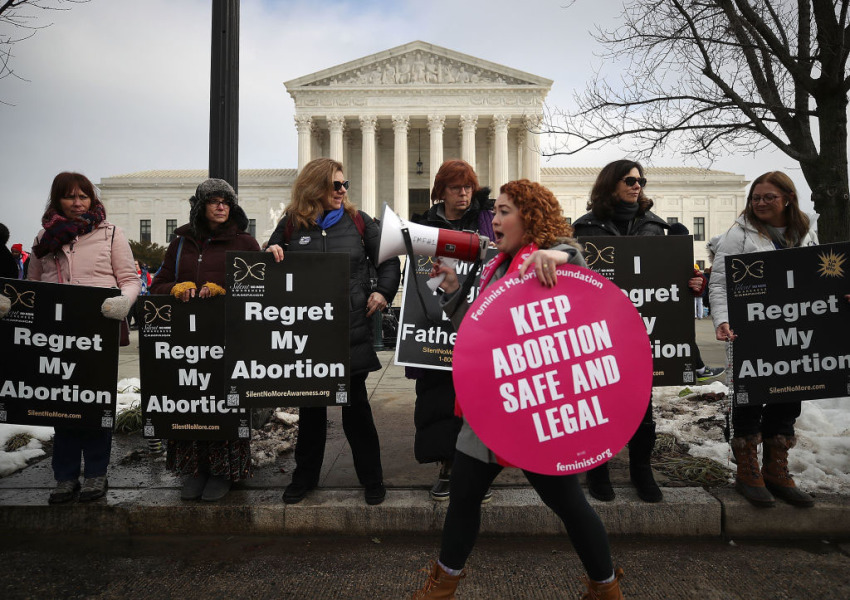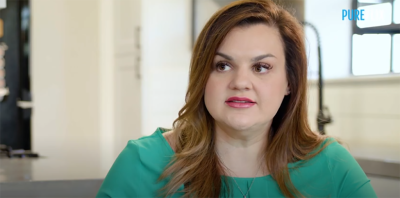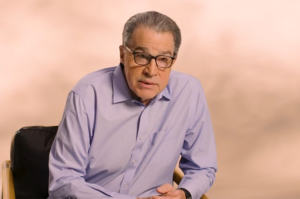Abby Johnson's new project helps women seek legal action for post-abortion injuries

A prominent pro-life activist has started a new project designed to help women who want to take legal action after experiencing complications from an abortion.
Hurt After Abortion, launched last month, is the latest project of Pro-Love Ministries, which was founded by pro-life activist and former Planned Parenthood Employee of the Year, Abby Johnson. The project is a partnership with the Thomas More Society, a notable Catholic law firm.
Pamela Whitehead, who serves as executive director of Hurt After Abortion, described the project in an interview with The Christian Post.
“We have a website and the hope is that women who have been physically harmed by having an abortion procedure and who are seeking help in some way would find our site,” she said. “We offer a free legal consultation and if the lawyers decide to take her case, then their services would be free of charge to her. We also offer a referral to an options-based healing network for abortion that would individualize the care to that woman based on her needs.”
“We also can help women access their medical records and get a copy of their medical records. Many people don’t even know that they have that access, that they have that right. Often women, part of their healing journey is looking back and trying to remember exactly what happened," Whitehead said.
"Many women who go through these procedures and have an injury feel like maybe they got what they deserved, or this is just what happened to me and I can’t hear this because I already have shame about what I’ve done,” she added.
After expressing a desire for states to increase health and safety oversight at abortion clinics, Whitehead described her expectations for the new project as “limitless."
“We really believe that God is going to send the women to us. We know without a doubt that many of these women are sitting at church. ... We believe that many of those women are sitting in our church pews seeking answers, looking for help and also not finding it, so we hope to be that help.”

In an interview with CP, Johnson offered details about her own inspiration for creating the Hurt After Abortion project. In addition to operating six projects under Pro-Love Ministries, Johnson also founded the group And Then There Were None, which is designed to help abortion clinic workers leave the industry.
Johnson told CP that she had long wanted to “place billboards outside of abortion clinics that just simply said: ‘Have you been hurt after an abortion?’”
“I have a lot of kids, so I would be up late at night, nursing or feeding babies, and I would see all of these advertisements for law firms. I’m assuming they were class-action lawsuits … and they would say, ‘If you’ve been hurt by these products or if you’ve been hurt by this thing or that thing, call this law office.’ And I just thought, why aren’t we doing something like that in the pro-life movement?”
“I even called my private attorneys on multiple occasions to discuss being an expert witness on various personal injury lawsuits that patients had filed, but those always settle out of court. And so I thought, there have to be women who want to come forward who have been harmed by the abortion industry, but they just don’t know where to go. And that had always been in the back of my mind for years.”
As Johnson explained, Whitehead “went to the Vita Institute at Notre Dame one summer where she had the realization that we also need to be reaching out to these women and giving them an opportunity to seek legal recourse.”
Whitehead elaborated on what happened during her 2019 trip to the Vita Institute that led her to have that realization.
“I’m sitting in this session, the lecture, and Carter Snead is the dean of the de Nicola Center for Ethics & Culture at Notre Dame, and he was giving a lecture on the history of abortion in America,” she recounted to CP.
After mentioning several challenges over the years to the Roe v. Wade Supreme Court decision that legalized abortion nationwide, Snead noted that each time, “the case would go to the Supreme Court but there wasn’t enough evidence to overturn Roe v. Wade, and he said that several times with every case throughout the lecture.”
Whitehead told CP that the premise that there was not enough evidence to overturn Roe “resounded in me loudly” and reminded her of her own experience of having an abortion in 2001: “I left that clinic in an ambulance because I was injured. The 14th Amendment gives women, supposedly gives the right to have an abortion because of the right to privacy.”
“But there’s another part of the 14th Amendment that is supposed to afford us equal protection under the law. And as he was talking, I was reminded of that. I did not receive equal protection; I was not given the same standard of care that women who were having other surgeries were given,” she contended.
Whitehead suffered a perforated uterus during her abortion, even though she was told that the procedure was a “safe” form of “healthcare” and that it would improve her life.
Following Snead’s speech at the Vita Institute, Whitehead spoke with him and asserted that “women who have been harmed by abortion are the evidence that’s needed to overturn Roe.”
After returning from the Vita Institute, Whitehead shared her idea to create what would eventually become the Hurt After Abortion project. Johnson believed at the time that it was a project Pro-Love Ministries could undertake, but also realized she would “have to find attorneys who are willing to actually try these cases.”
“And so, I talked to the Thomas More Society who we work with frequently for our And Then There Were None clients, and I talked to them about it and said, ‘Look, if we do this, will you help us, will you litigate these cases for us?’ And they were all in,” Johnson recalled. “One thing just sort of led to another, and we realized that we had enough help to actually get this thing going.”
According to Hurt After Abortion, physical injuries from abortion include “heavy bleeding, infection, incomplete abortion, damage to the cervix, scarring of the uterine lining, perforation of the uterus, (and) damage to internal organs.”
Abortions can also result in psychological injuries, such as “eating disorders, relationship problems, flashbacks of abortion, suicidal thoughts, sexual dysfunction, alcohol and drug abuse, (and) self-harm,” as well as the emotional “hurts” of “guilt, regret, depression, (and) anger.”
“One of the problems that we have here in the United States is we have very poor tracking of these complication rates,” Johnson said. “So when a woman presents to an emergency room and she had an abortion and she’s bleeding, they’re going to report that as just simply a hemorrhage. They’re not going to say, ‘Oh, she was hemorrhaging because of an abortion,’ they’re just going to say ‘she’s hemorrhaging.’”
Johnson explained that in Finland, a country with better tracking, “Their serious complication rate lies at about 20%,” adding, “We know that the complication rate is a lot higher in the United States than what the abortion industry claims it is. It’s just because of poor reporting that we don’t actually know what that rate is.”
While the Hurt After Abortion project is itself a new venture, Johnson is already looking down the road for new opportunities to expand her pro-life ministry: “We always have projects on the horizon, we always have ideas that we’re coming up with. We’re always looking for gaps that need to be filled. We’re always looking for how we can best serve women and their children.”



























